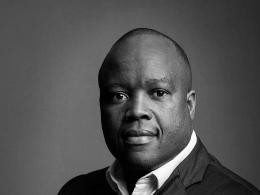A big wave of consolidation in the healthcare sector is still many years away and will be limited to only some cities as the industry struggles to scale up revenues, according to panellists at News Corp VCCircle Healthcare Investment Summit 2017.
"If there is a punchline for the industry's problem, it is this - how to get revenues?" said Ajay Bakshi, CEO, Manipal Hospitals. "We have not applied the principles of science to scale up revenues. We don't have shortage of money and patients. But we are not able to get patients in hospitals. Address this challenge and consolidation will happen automatically," he said.
“Besides, it is difficult to change the culture of an organisation a company is acquiring. So, focus should be on building a uniform culture,” Bakshi said.
Abhishek Kapoor, senior vice president, strategy, Regency Healthcare, noted that there are a lot of hospitals in tier II cities but their growth has stagnated due to lack of funds. “These hospitals present investment opportunities that later could be assets for acquisitions,” he said, adding that it would take over five years for this to happen.
Kapoor said practitioners of 30-40-bed mom-and-pop hospitals are more involved in managing their businesses rather than using their skills as doctors and would want to get acquired by a hospital chain.
Bhaskar Rao, managing director and CEO of Hyderabad-headquartered KIMS Hospitals, seconded Kapoor’s opinion. "Realistic consolidation will happen the day when doctors realise that we have to work for clinical excellence," he said.
Nitish Agrawal, managing director, Indium Capital, said cultural issues can pose challenges in consolidation across sectors though they might be more intense in healthcare. “Besides, acquisition of a chain of hospitals rather than a standalone hospital is more attractive as the financial stability of the former is good,” he said.
Private equity investments have been a driving force for consolidation, Agrawal said. "PE players come for a limited period. This leads to expectations about faster returns which are driving consolidation," he said. He also noted that consolidation is happening mainly in top 10-20 cities.
Mudit Saxena, group CEO of CARE Hospitals, said technology would be the driving factor of consolidation.
CARE Hospitals' Saxena said while the government's move to cap prices of stents would make products affordable for patients, it can lead to concerns about quality.
The panellists also underlined the need to address regulatory challenges and pricing issues as these could hamper consolidation.







